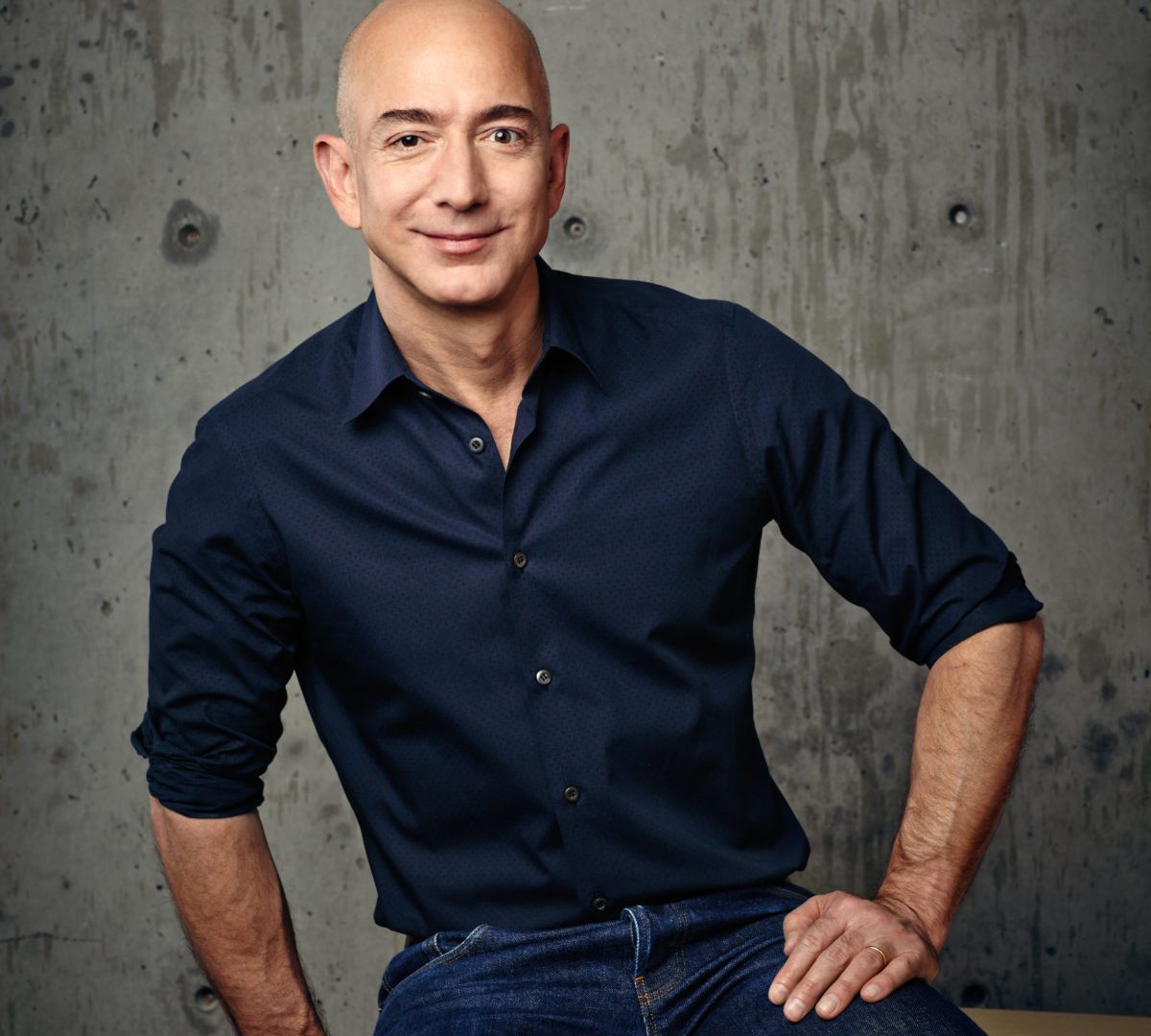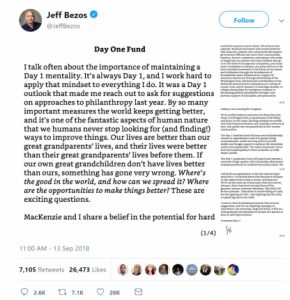Questions for Jeff Bezos

 Last week Amazon CEO Jeff Bezos and his wife MacKenzie Bezos, a novelist, announced that they are creating a $2 billion fund focusing on family homelessness and early childhood education. As a member of the largest foundation focused solely on ending homelessness, I am thrilled both that the issue rose to the top of his Twitter post asking for ideas on how to focus his philanthropy and that this fund will no doubt elevate family homelessness as an issue in need of immediate attention and investment. But a nagging question remains—will it help?
Last week Amazon CEO Jeff Bezos and his wife MacKenzie Bezos, a novelist, announced that they are creating a $2 billion fund focusing on family homelessness and early childhood education. As a member of the largest foundation focused solely on ending homelessness, I am thrilled both that the issue rose to the top of his Twitter post asking for ideas on how to focus his philanthropy and that this fund will no doubt elevate family homelessness as an issue in need of immediate attention and investment. But a nagging question remains—will it help?
Having spent the first half of my career in corporate America, a flurry of questions immediately come to mind:
- What is the strategy behind the investment?
- Where will the dollars be targeted?
- How will the return on this investment be measured?
As a Casey Fellow, I now ask a new set of questions:
- How much will be done?
- How well will it be done (and how will we know)?
- Will anyone be better off?
I sought a job in philanthropy because I wanted to answer these very questions. From my work in the field, I have come to believe that homelessness is a symptom of multiple systems failing—the failure to provide access to decent affordable housing, quality education, adequate healthcare, jobs that pay a living wage, and the public transportation to get there. It’s the failure to allow “others” into the social networks that provide privileged access to opportunity. Ultimately, I believe it’s the failure to advance policies and enforce practices that have fair and equitable results as opposed to disparate impact on people of color and the poor.
We tend to treat symptoms because we want to alleviate suffering and provide immediate comfort:
Offering food to people that are hungry provides temporary relief, but if an individual or family must still depend on a soup kitchen to ease their hunger then in the long run they are no better off.
Having shelter for a night, or even a month, offers comfort but if one still doesn’t have a safe, decent home then they are no better off.
Having access to a crisis response network when experiencing homelessness will provide both relief and comfort but if the homeless experience doesn’t end then they are no better off.
For those of us in philanthropy who have the capacity and privilege to direct substantial resources, to influence, to lead, to partner, cajole, and advocate for social reforms and smarter public-sector investments—we have the obligation to look beyond just managing homelessness to ending it. And the best way to end family homelessness is to ensure that families and children have a stable home, which is the foundation for better health, consistent employment, and effective education.
Dr. Donna Beegle once challenged a room full of community leaders to close our eyes and picture someone who was homeless. Then she asked us to picture someone who had lost their home. I challenge you to do that. What do you see? How would you approach helping someone who is “homeless” compared to someone who had “lost their home?” We tend to apply Band-Aids to people who are “homeless” and provide solutions for people who have lost a home. Homelessness is not a demographic to be dealt with—someone has lost their home.
I am very pleased that Mr. Bezos is supporting people experiencing homelessness. And as Mr. Bezos deploys these resources I trust he, and we, will ask the simple questions: How much? How well? Is anyone better off?
